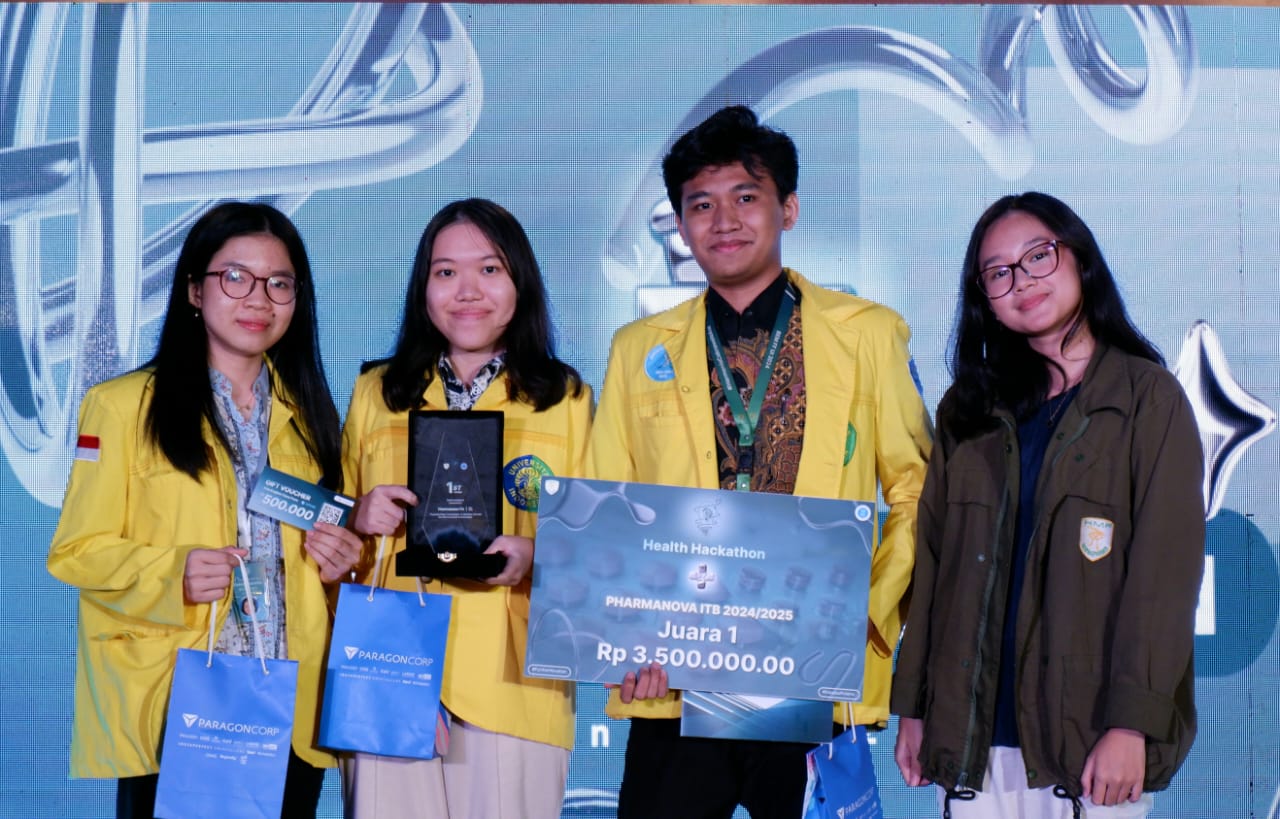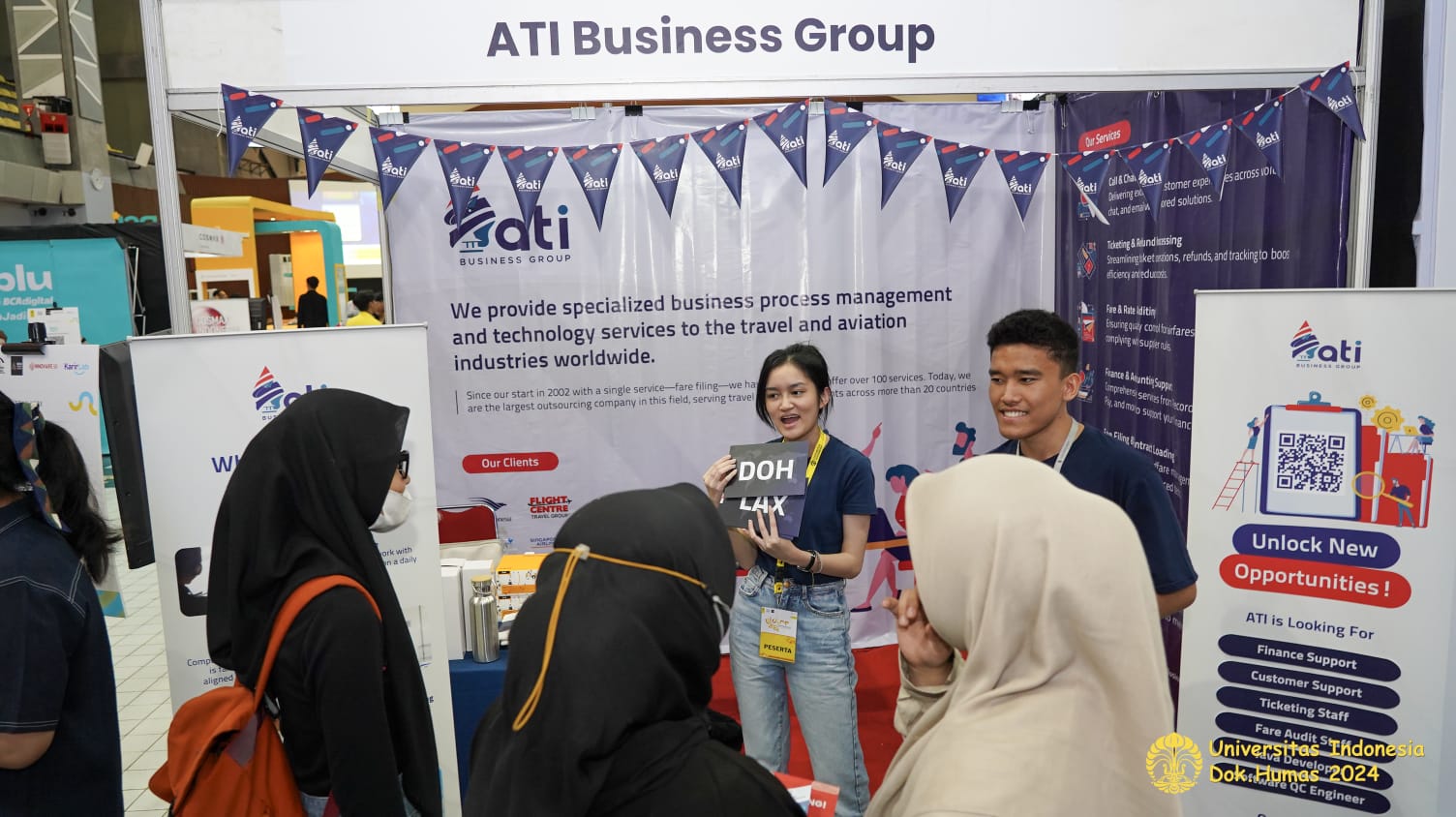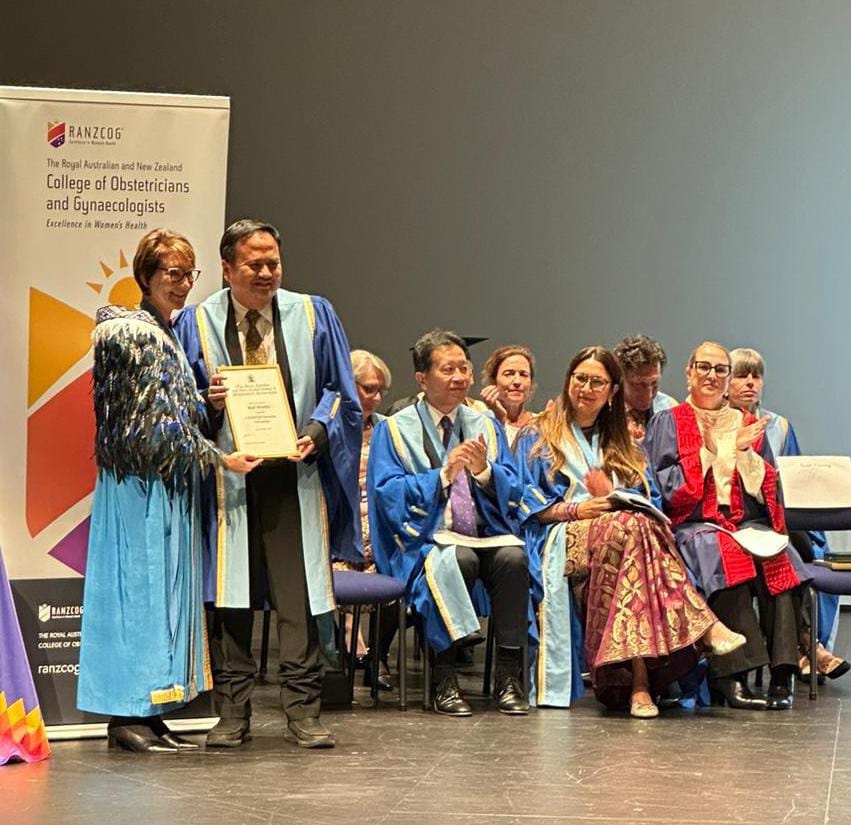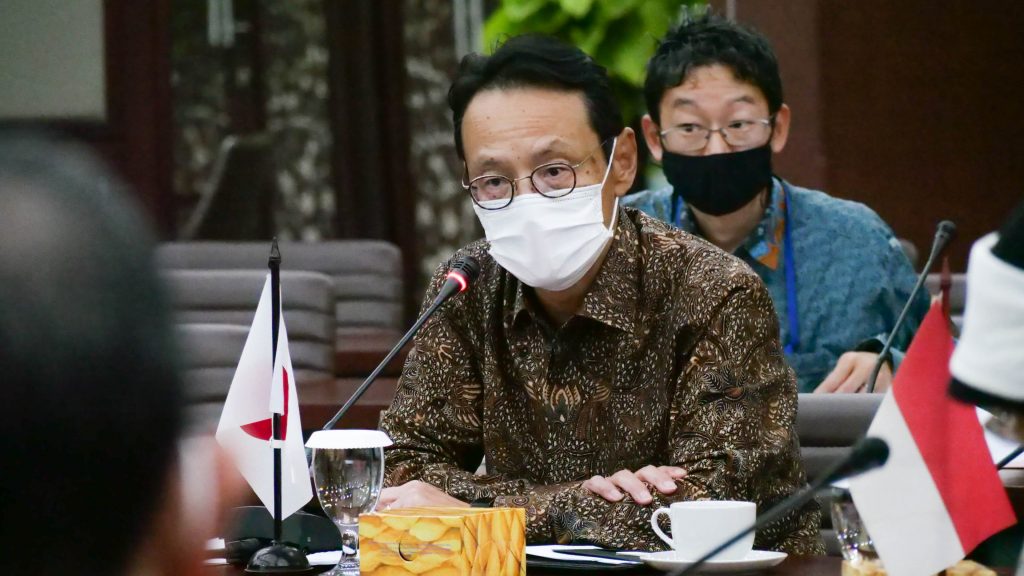
Author: Vinny Shoffa
The Ambassador of Japan to Indonesia, H.E. Mr. Kenji Kanasugi visited Universitas Indonesia (UI) on Wednesday (1/12), at the 9th Floor Conference Room, University Administration Center Building, UI Depok. The event was attended by representatives from the Embassy of Japan to Indonesia, Mr. Takahiro Wakabayashi (Director of Information and Culture), Mr. Kazuhiko Shimizu (Economic Consultant), Mr. Takahashi Yusuke (Chief Secretary), as well as representatives from Universitas Indonesia (UI).
In his remarks, the Rector of Universitas Indonesia, Prof. Ari Kuncoro, welcomed the visit and hoped it would enhance the cooperation between UI and the Japanese government in the fields of academics, technology, and research. “The cooperation between UI and Japan in the transformation of innovation in the academic field 4.0 will then expand to other segments, namely research and innovation in order to create excellent education. We hope that together with the Japanese government, UI can continue to improve the quality of education and become a role model for other universities in Indonesia,” Prof. Ari said.
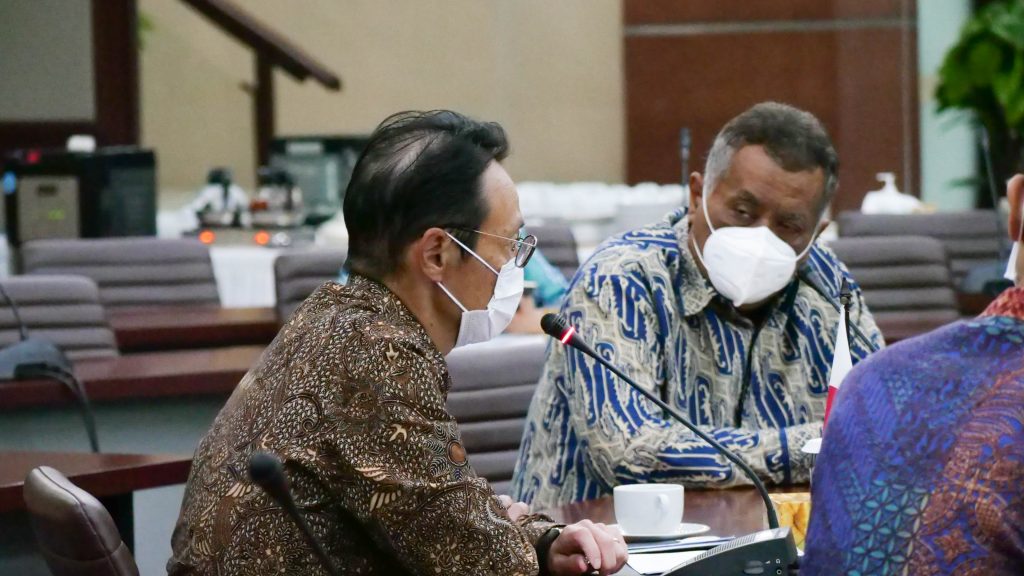 In response, Mr. Kenji Kanasugi added that Japan’s cooperation with UI in the field of research and education has actually been established for a long time and in the future it is hoped that this cooperation will be able to adapt to future educational needs. “The long-standing cooperative relationship between Japan and Indonesia has brought positive impacts to both countries, especially the cooperation between UI and Japanese universities. Through cooperation in education such as student exchange, research collaboration, and cultural exchange with Indonesia, it is hoped that there will be more in terms of sustainable academic development,” said Mr. Kanasugi.
In response, Mr. Kenji Kanasugi added that Japan’s cooperation with UI in the field of research and education has actually been established for a long time and in the future it is hoped that this cooperation will be able to adapt to future educational needs. “The long-standing cooperative relationship between Japan and Indonesia has brought positive impacts to both countries, especially the cooperation between UI and Japanese universities. Through cooperation in education such as student exchange, research collaboration, and cultural exchange with Indonesia, it is hoped that there will be more in terms of sustainable academic development,” said Mr. Kanasugi.
In line with Mr. Kanasugi’s statement, the Secretary of the University, Dr. Agustin Kusumayanti, M.Sc., Ph.D. in the brief discussion stated that cooperation in the health sector with the Japanese government has been carried out, one of which is through research and innovation of medical devices at UI Hospital. “It is hoped that further cooperation with the Japanese government in the health sector can improve better, especially in the UI environment. This collaboration is expected especially in transforming the health system, so that it can have a positive impact on UI and the Japanese government as cooperation partners,” said Dr. Agustin. Vice Rector for Research and Innovation, drg. Nurtami, who also attended the event, said the same thing as Dr. Agustin, namely that cooperation in developing the health system between the Japanese government and UI can be carried out in the future.
 In addition to conducting a visit to the UI Rectorate, the Japanese Embassy through The Nippon Foundation handed over book donations at the Building 1 Auditorium, Faculty of Humanities, Universitas Indonesia (FHum UI). The books donated came from the public who donated their books to The Nippon Foundation with a variety of reading types, mainly books on Japanese studies and culture. This book donation is expected to strengthen the cooperation between the Japanese government and Universitas Indonesia, especially the Faculty of Humanities (FHum) in improving the quality of education.
In addition to conducting a visit to the UI Rectorate, the Japanese Embassy through The Nippon Foundation handed over book donations at the Building 1 Auditorium, Faculty of Humanities, Universitas Indonesia (FHum UI). The books donated came from the public who donated their books to The Nippon Foundation with a variety of reading types, mainly books on Japanese studies and culture. This book donation is expected to strengthen the cooperation between the Japanese government and Universitas Indonesia, especially the Faculty of Humanities (FHum) in improving the quality of education.
Dean of FHum UI, Dr. Adrianus Laurens Gerung Waworuntu, S.S., M.A. explained that UI’s cooperation with Japan has been going on for a long time, especially in terms of developing literary studies. “The cooperation between (FHum) UI with the Japanese government began since the existence of the Center for Japanese Studies (CJS) as a learning facility for Indonesian people (students) to learn Japanese culture. Conversely, people (students) from Japan also learn about Indonesian culture through the CJS or BIPA (Bahasa Indonesia bagi Penutur Asing, Indonesian for Foreign Speakers) language institute owned by FHum UI. Therefore, we hope this cooperation can last longer and improve better,” said Dr. Adrianus.
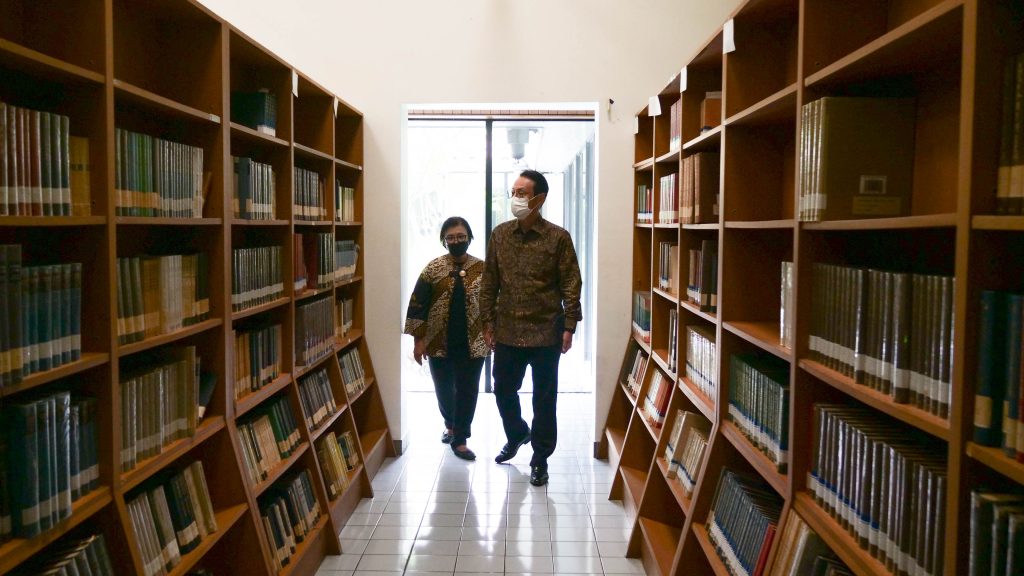 The discussion also discussed further cooperation in the fields of technology and health in handling the new Covid variant, the Omicron variant. Please note, the Omicron variant is a new Covid variant that is more dangerous than the previous variant (Delta). For this reason, improving the quality of health and research on the Omicron variant needs to be developed as early as possible, before the variant spreads more widely to the territory of Indonesia. The event ended with a visit from the Embassy of Japan to Indonesia to the Center for Japanese Studies (CJS), Faculty of Humanities UI. During the visit to the Center, the Embassy of Japan was invited to look directly around the building and have a talk with FHum UI.
The discussion also discussed further cooperation in the fields of technology and health in handling the new Covid variant, the Omicron variant. Please note, the Omicron variant is a new Covid variant that is more dangerous than the previous variant (Delta). For this reason, improving the quality of health and research on the Omicron variant needs to be developed as early as possible, before the variant spreads more widely to the territory of Indonesia. The event ended with a visit from the Embassy of Japan to Indonesia to the Center for Japanese Studies (CJS), Faculty of Humanities UI. During the visit to the Center, the Embassy of Japan was invited to look directly around the building and have a talk with FHum UI.

